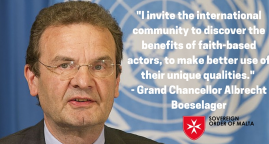The Global Risks Report 2019
Report published on the World Economic Forum website on 01/15/2019
The Global Risks Report 2019 is published against a backdrop of worrying geopolitical and geo-economic tensions. If unresolved, these tensions will hinder the world’s ability to deal with a growing range of collective challenges, from the mounting evidence of environmental degradation to the increasing disruptions of the Fourth Industrial Revolution.
The report presents the results of our latest Global Risks Perception Survey, in which nearly 1,000 decision-makers from the public sector, private sector, academia and civil society assess the risks facing the world. Nine out of 10 respondents expect worsening economic and political confrontations between major powers this year. Over a ten-year horizon, extreme weather and climate-change policy failures are seen as the gravest threats.
This year’s report includes another series of “what-if” Future Shocks that examine quantum computing, weather manipulation, monetary populism, emotionally responsive artificial intelligence and other potential risks. The theme of emotions is also addressed in a chapter on the human causes and effects of global risks; the chapter calls for greater action around rising levels of psychological strain across the world.
Related Articles
Where do we go from here? 1st Annual Grand Bargain Meeting
06/20/2017. “Together we were determined to reset our ways of working and refocus our efforts on achieving humanitarian gains” Peter Maurer.
Redesigning Humanitarian Action: Beyond the Crisis
01/19/2017. This talk features some interesting insights from Peter Maurer, Filippo Grandi and Ajay Banga.
Highlights of the Sovereign Order of Malta’s participation at the WHS
05/26/2015. 9000 participants came together to reshape the field of humanitarian action.





